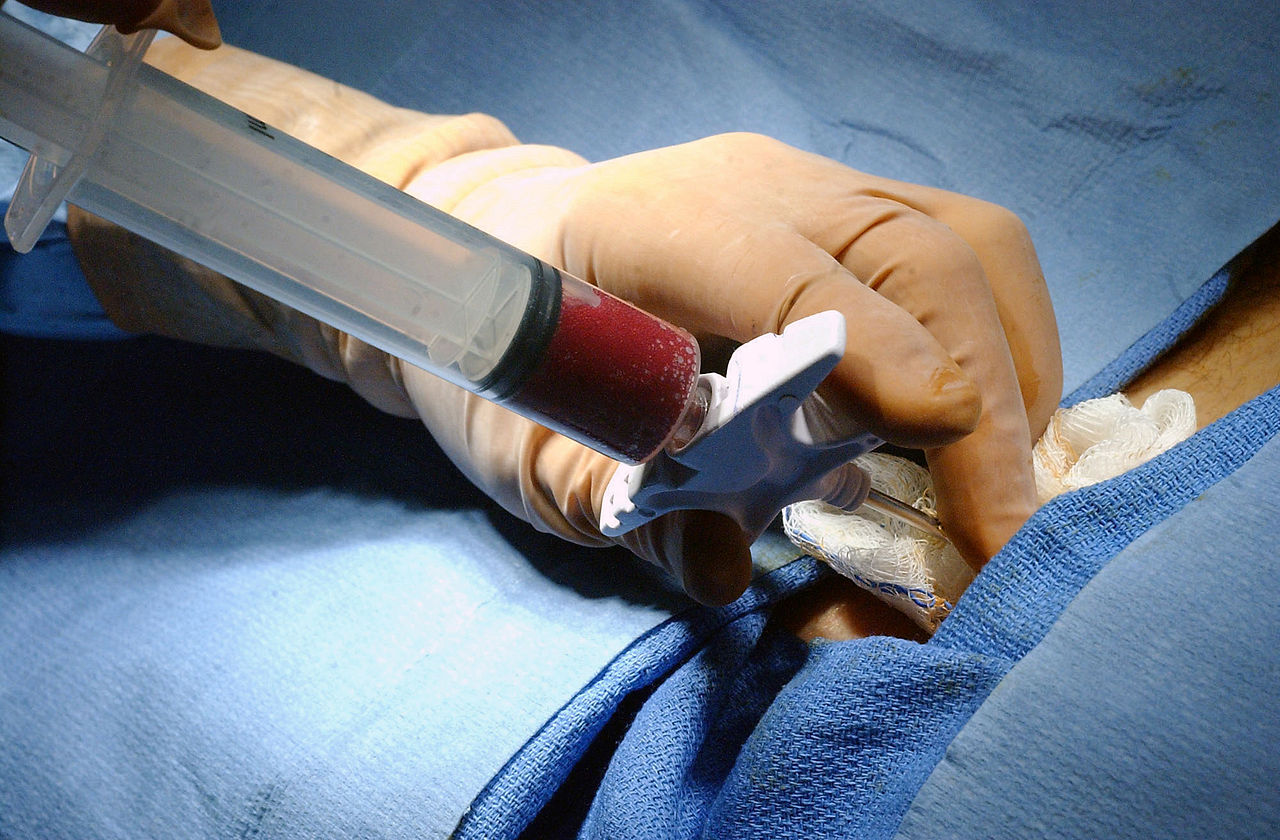Radical MS treatment can halt disease – but could be fatal
Patients face heart-breaking dilemma over treatment that leaves immune system dangerously vulnerable

A free daily email with the biggest news stories of the day – and the best features from TheWeek.com
You are now subscribed
Your newsletter sign-up was successful
A radical treatment for multiple sclerosis has given a number of trial volunteers their lives back - but it comes with a deadly dilemma.
MS causes the immune system to attack the protective layer around nerve fibres in the spinal cord, optic nerves and brain, which can leave patients paralysed and blind.
Using a procedure more commonly used to treat leukaemia, the new therapy "erases" the patient's immune system via chemotherapy and then "reboots" it with a transfusion of stem cells previously collected from the patient and purified.
The Week
Escape your echo chamber. Get the facts behind the news, plus analysis from multiple perspectives.

Sign up for The Week's Free Newsletters
From our morning news briefing to a weekly Good News Newsletter, get the best of The Week delivered directly to your inbox.
From our morning news briefing to a weekly Good News Newsletter, get the best of The Week delivered directly to your inbox.
However, the treatment comes with astounding risks and leaves the patients dangerously vulnerable until the stem cells take effect. One of the 24 volunteers in the latest medical trial died after developing a liver infection.
On the other hand, the potential benefits are equally astounding. Although the treatment only aims to halt the progress of the disease, some patients reported a life-changing improvement in their condition.
Follow-up reports on the 24 patients in the trial, carried out at the Ottawa Hospital, revealed that MS symptoms had halted in 70 per cent of patients and 40 per cent went into remission.
Canadian Jennifer Molson told New Scientist that when she had needed a wheelchair when she volunteered.
A free daily email with the biggest news stories of the day – and the best features from TheWeek.com
"I took a leap of faith. I felt like I would be kicking myself if I didn't take this chance," she said. After 18 months, her symptoms began to disappear and now she can walk, work full-time and enjoy skiing holidays with her husband.
"This is very exciting," Dr Harold Atkins told the Daily Telegraph. He cautioned that the therapy had "serious side effects and risks" and was only appropriate for a small proportion of MS patients.
-
 Why is the Trump administration talking about ‘Western civilization’?
Why is the Trump administration talking about ‘Western civilization’?Talking Points Rubio says Europe, US bonded by religion and ancestry
-
 Quentin Deranque: a student’s death energizes the French far right
Quentin Deranque: a student’s death energizes the French far rightIN THE SPOTLIGHT Reactions to the violent killing of an ultraconservative activist offer a glimpse at the culture wars roiling France ahead of next year’s elections
-
 Secured vs. unsecured loans: how do they differ and which is better?
Secured vs. unsecured loans: how do they differ and which is better?the explainer They are distinguished by the level of risk and the inclusion of collateral
-
 'Angel' visits woman before lottery win
'Angel' visits woman before lottery winTall Tales And other stories from the stranger side of life
-
 Doomsday group offers 'epic' survival opportunity
Doomsday group offers 'epic' survival opportunityTall Tales And other stories from the stranger side of life
-
 What we know about the Titan sub’s likely implosion
What we know about the Titan sub’s likely implosionfeature Experts say the five passengers would have died ‘instantaneously’ following ‘catastrophic’ loss of pressure
-
 What happened to the missing Titanic sub?
What happened to the missing Titanic sub?Today's Big Question Oxygen supplies running out after vessel lost contact during ‘daredevil’ trip
-
 Man arrested after shooting himself in the leg
Man arrested after shooting himself in the legfeature And other stories from the stranger side of life
-
 Scientists have watched the end of the world
Scientists have watched the end of the worldfeature And other stories from the stranger side of life
-
 Canada’s troubled relationship with its indigenous population
Canada’s troubled relationship with its indigenous populationfeature State grappling with reparations amid accusations of genocides against First Nations people
-
 Woman passes driving test at 960th attempt
Woman passes driving test at 960th attemptfeature And other stories from the stranger side of life